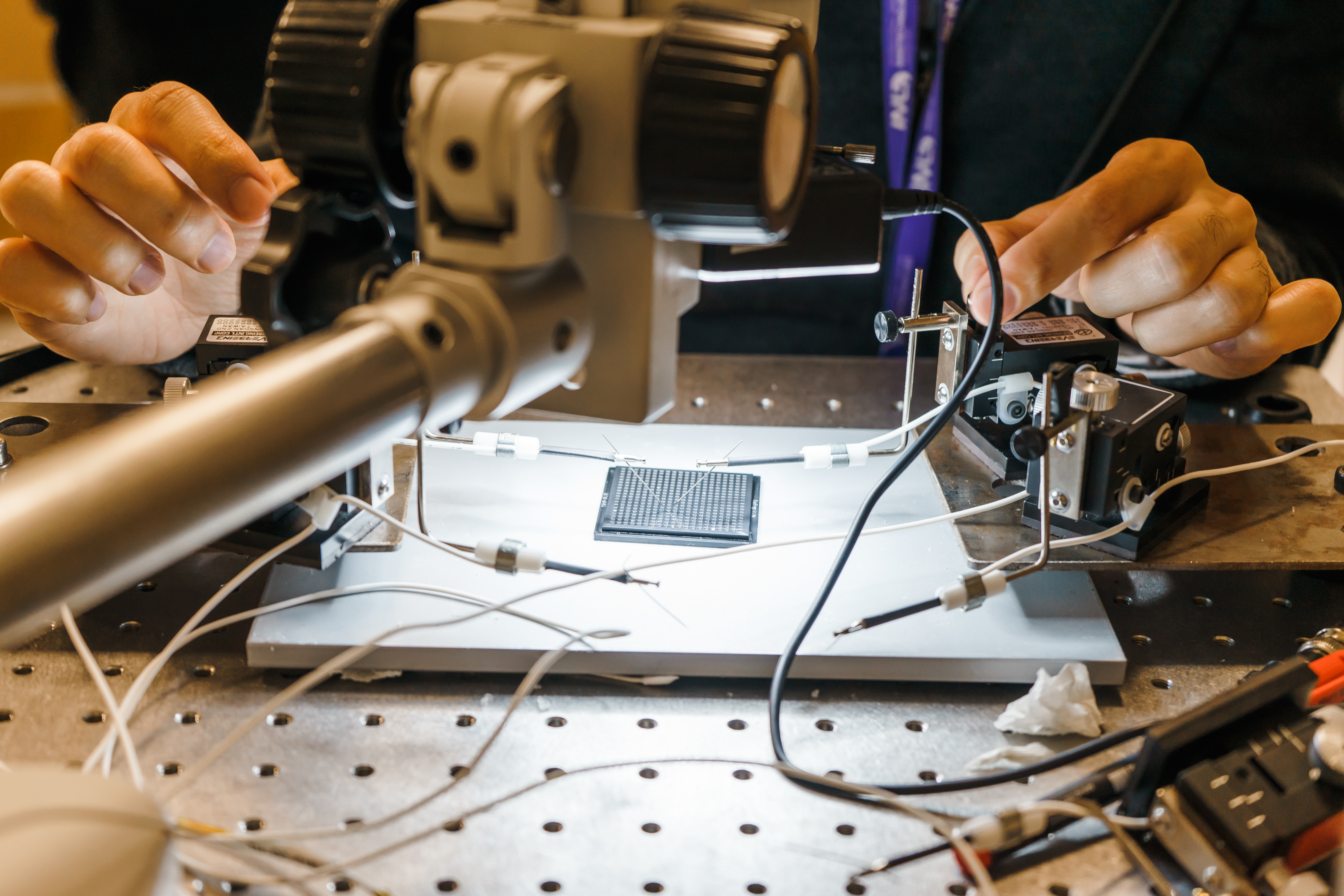Last Friday evening, INL hosted the Nano Circus, an extraordinary event that combined nanotechnology and circus arts, in a dazzling show of creativity and collaboration. Nano Circus showcased the culmination of a transformative artistic residency by the Equilibrium Social Circus team at INL. The Director General of INL Professor Clivia Sotomayor, took the stage to officially inaugurate the celebration, emphasising INL’s commitment to making the wonders of nanotechnology accessible to diverse communities. In July, the Equilibrium Social Circus team was invited to visit INL for an exciting artistic residency, fostering the exchange of knowledge. Sara Leite, project coordinator at Projecto Homem, gave a few words before the show “Equilibrium Social Circus is a social project dedicated to preventing behavioural issues in adolescence through Social Circus, an innovative approach merging circus arts and social intervention to act as a catalyst for psychosocial transformation”. These students weren’t passive observers – they were the architects of the Nano Circus. With guidance from their mentor Rodolfo Correia, they explored INL’s laboratories, delving into the microscopic world of nanotechnology and interacting with scientists. INL researchers Adriana Carneiro, Andrea Gouvêa, José Loché, and Duarte Mota, shared their scientific expertise, and the Equilibrium Social Circus team shared […]
Read more


